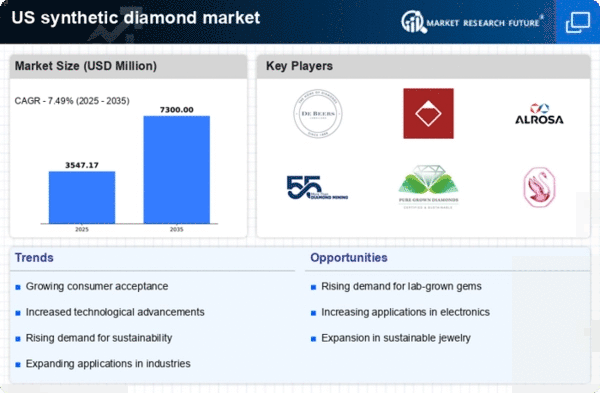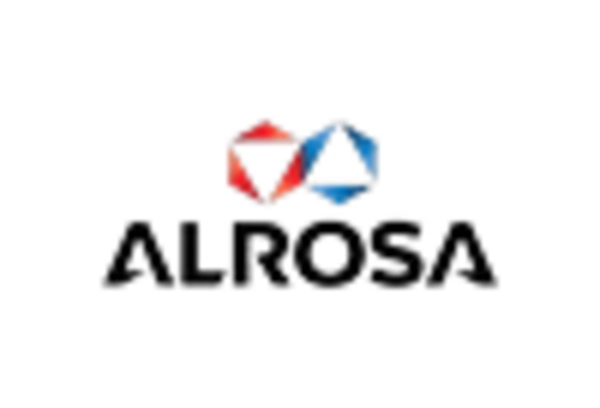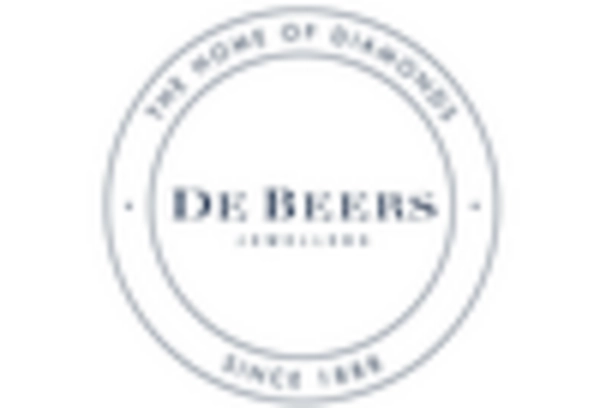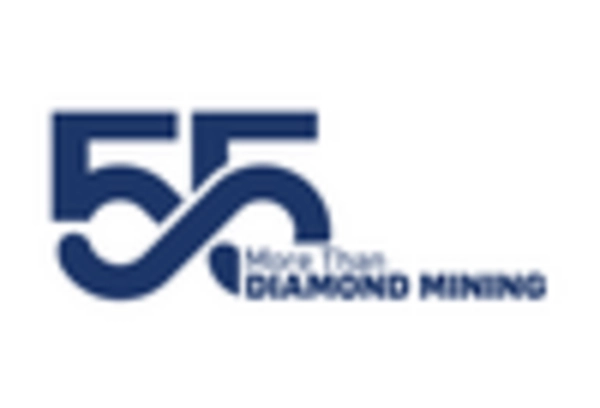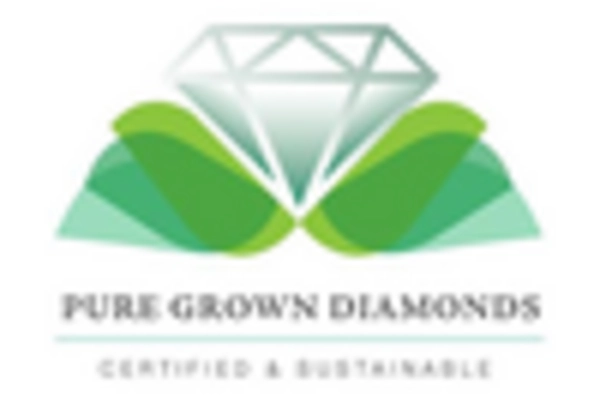The synthetic diamond market is currently characterized by a dynamic competitive landscape, driven by technological advancements and shifting consumer preferences towards sustainable products. Key players such as De Beers (GB), Diamond Foundry (US), and Pure Grown Diamonds (US) are at the forefront, each adopting distinct strategies to enhance their market positioning. De Beers (GB) has focused on innovation, particularly in the development of lab-grown diamonds that appeal to environmentally conscious consumers. Meanwhile, Diamond Foundry (US) emphasizes its commitment to sustainability, leveraging renewable energy in its production processes, which resonates well with the growing demand for ethically sourced products. Pure Grown Diamonds (US) has also carved a niche by promoting the affordability and quality of its offerings, thereby attracting a broader customer base.The business tactics employed by these companies reflect a concerted effort to optimize supply chains and localize manufacturing. The market structure appears moderately fragmented, with several players vying for market share, yet the influence of major companies remains substantial. This competitive environment fosters innovation and encourages smaller firms to adopt unique selling propositions to differentiate themselves.
In October De Beers (GB) announced a strategic partnership with a leading technology firm to enhance its diamond tracing capabilities, utilizing blockchain technology to ensure transparency in the supply chain. This move is likely to bolster consumer trust and align with the increasing demand for traceable and ethically sourced diamonds. The integration of such technology may set a new standard in the industry, compelling competitors to follow suit.
In September Diamond Foundry (US) unveiled a new line of lab-grown diamonds that utilize a proprietary process aimed at reducing production costs by 20%. This innovation not only positions the company competitively in terms of pricing but also enhances its sustainability narrative, potentially attracting a wider audience concerned with environmental impact. The strategic focus on cost reduction while maintaining quality could significantly influence market dynamics.
In August Pure Grown Diamonds (US) expanded its distribution network by entering into a partnership with several major retailers across the US. This strategic move is anticipated to increase accessibility to lab-grown diamonds, thereby enhancing market penetration. By aligning with established retail channels, Pure Grown Diamonds (US) may effectively capitalize on the growing consumer interest in synthetic options, further solidifying its market presence.
As of November the competitive trends within the synthetic diamond market are increasingly defined by digitalization, sustainability, and the integration of artificial intelligence in production processes. Strategic alliances are becoming more prevalent, as companies recognize the value of collaboration in enhancing innovation and operational efficiency. Looking ahead, it appears that competitive differentiation will increasingly pivot from price-based strategies to those centered on technological advancements, sustainability, and supply chain reliability, suggesting a transformative shift in how companies engage with consumers and each other.


